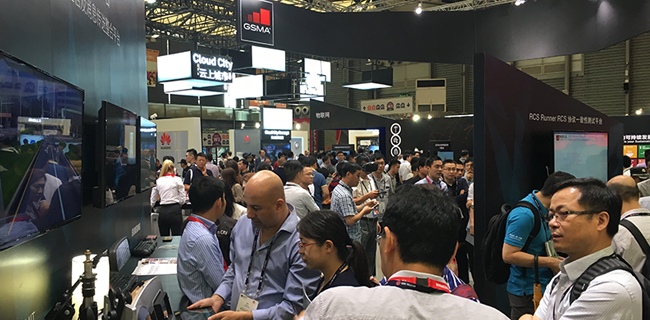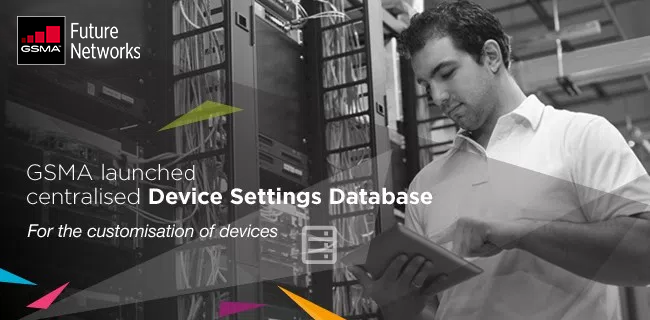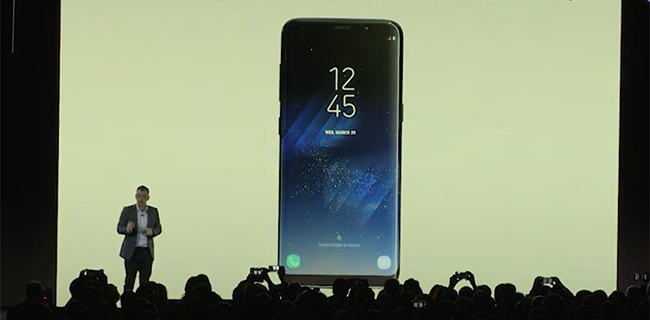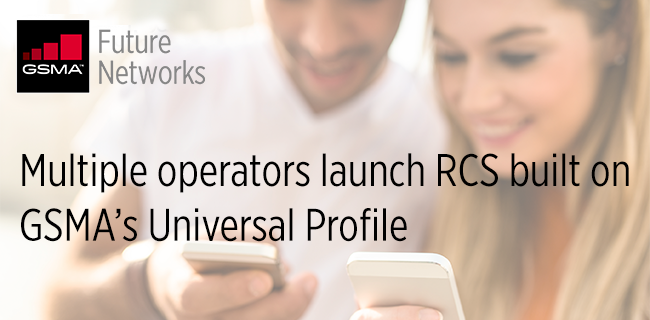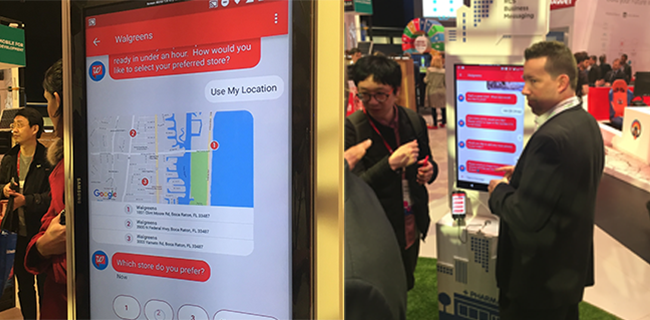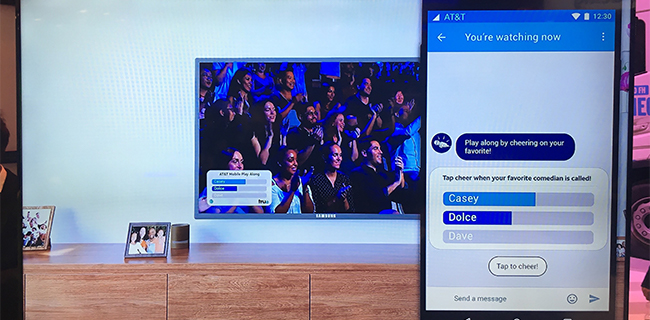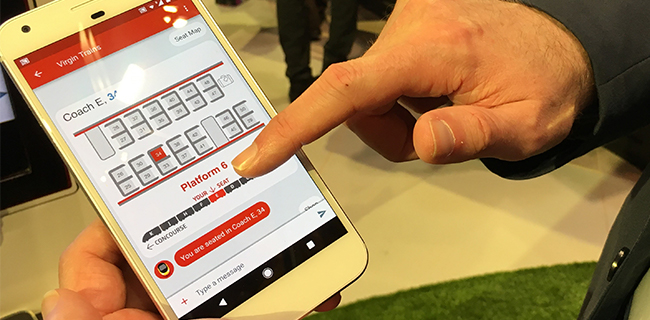






More Information
RCS Business Messaging provides brands with the opportunity to increase their engagement with customers by making use of business feature-rich mobile messaging using chatbots and artificial intelligence (AI).
User adoption is simple and straightforward. There is no need to download multiple apps as users gain direct access to a range of brands and services from within the messaging app itself, allowing them to engage with virtual assistants to book flights, buy clothes, make restaurant reservations and more.
Frequently Asked Questions
Does interoperability limit the scope of operator differentiation?
No. SMS and MMS are good examples of successful service enablers that have thrived based on interoperability while encouraging a proliferation of differentiated value-added services. RCS provides core functionality, enabling app development and differentiation, based on underlying interoperability and compatibility, such as instant messaging. Interoperability ensures that core RCS service features will operate seamlessly between users, whichever operator they belong to and whatever mobile phone they have.
How do you create a unique proposition for end-users?
The compelling strapline for RCS is: ‘It’s just there, and it just works’. RCS gives end-users the immediate opportunity to communicate with others in a variety of ways, without requiring installation, registration, etc. Furthermore, Rich Communications Services (RCS) boasts levels of security and QoS that only operators can provide and there will be no ‘closed community’ limitations. In other words, RCS will be available to all mobile operator subscribers, independent of handset and users will be made aware of an address book contact’s service capability. RCS provides end-users with a frictionless and trustworthy experience across networks and borders. Only mobile operators are capable of delivering such a service, and it is what today’s end-users have come to expect.
What infrastructure will operators need to deploy to take advantage of RCS?
RCS services are based on the IP-Multimedia Subsystem (IMS), as specified by the 3GPP and adopted by major industry standardisation bodies for mobile and fixed networks. Operators may implement their own IMS solution or can access the services of a hosted solution to provide a pre-IMS or partial-IMS implementation. The hosted solution may be a temporary or permanent solution for the operator.
Will RCS interconnect to Online Service Provider (OSP) apps such as Facebook Chat for example?
Example demonstrations from several vendors have shown that it is technically possible to achieve integrations between RCS and OSP apps. Such interconnects will be dependent on commercial agreements between operators and OSPs and will be based on similar terms and conditions as interconnect between RCS operators.
Can the RCS client be put on fixed devices such as IMS-registered IP phones and will these interwork with the mobile RCS clients?
An RCS client could be developed to work on IMS-registered IP phones and interworking would be possible if the networks are interconnected.
Aren’t the features of RCS inferior to Online Service Provider (OSP) app alternatives? How should operators position themselves to compete with them?
On the contrary, the current feature set, e.g. one-to-one and group chat, image and file-sharing of RCS, is competitive with most OSP services. Furthermore, RCS also offers the unique benefits of providing video, image and file share in-call, so that users do not have to switch apps to access these services. RCS also offers service capability discovery, which means that the user can be confident that if they see that a service is available, they can be sure that it will work. Operators can position their RCS services as easy to discover, install, set up and use and can offer a secure, reliable and private user experience.
Since WhatsApp, Viber, Line services etc. are already presented as IP-based apps, what is the added value of RCS?
The critical differentiator for RCS is that when natively integrated into the mobile phone or via a downloadable app, no intervention is needed by the end-user – ‘it’s just there’. Furthermore, only relevant and available services are offered to the user thanks to dynamic capability discovery – ‘it just works’.
What opportunities does an RCS deployment offer an operator?
The opportunity for the operator is to retain its relevance as the primary provider of personal communications services to its customers and reinvigorate its core communications products, by innovating and differentiating versus online service providers with ease of use, ubiquity, interoperability and privacy. New revenue-generating services can be developed on the RCS platform and will be discoverable in the right place, in the proper context.
How can operators monetise RCS-based services? Additional fees or data charging?
There are many ways in which RCS based services can be monetised: charging customers per event for certain services, bundling services into daily, weekly or monthly subscription packages or charging explicitly for data volumes consumed. In some cases, third-party service providers could be charged for the use of Rich Communications capabilities, e.g. video share or file share in the delivery of their specific services, such as in gaming apps or to enrich customer care services.
For an operator with strong on-net effect, Online Service Providers (OSPs) are not currently a significant threat and SMS price is already low, does it make sense to launch RCS at this moment? If they do so, isn’t this anticipating the loss of on-net effect?
RCS offers significant opportunities to enrich the consumer’s communications experience now, encouraging them to communicate more and helping to strengthen the mobile operator’s relationship with them. Maintaining the mobile operators’ relevance as the primary provider of communication services will become even more critical as competition shifts from the messaging market to the far more valuable voice market.
With the availability of high bandwidth, low latency, LTE networks, many more third parties could offer even more competitive mobile VoIP services. Operators need to act now to prepare themselves to compete with third-party service providers effectively.
What are the costs and timescales to implement RCS?
These are dependent on many factors, in particular, the current size and status of the operator’s network. For full deployment, there are a variety of architectural options that can be employed to achieve RCS deployment without significant upfront investments or complex network integrations.
Deployment of the first commercial RCS networks took less than nine months, with RCS Solutions taking as little as three months.
We can now confirm, given the ecosystem experience and knowledge acquired during these initial deployments, that future implementations have been much faster:
- LATAM region implemented six-country launches within five months with a hosted solution.
- Sprint, the second USA operator to launch RCS services, was live with a hosted solution within 12 weeks.
What is the market demand for this product? How will RCS compete with Online Service Providers (OSPs)?
The popularity of several OSP services best demonstrates the market demand. With the advent of all-IP networks and greater penetration of smartphones, demand for Richer Communications will grow. Yet, only operators can deliver quality, secure services whose scope is not
limited to a specific OEM or OS universe. Complementing this will be service capability, which will guarantee that end-users will not have a “trial and error” experience when attempting to communicate with address book contacts.
Who is the target audience for RCS?
Consumers who wish to stay in touch with friends and family, and capture and exchange rich media with them as events happen. The youth demographic is particularly attracted to the RCS proposition; and Business users who need to exchange multimedia documents and work collaboratively with colleagues.
How can the Future Networks team assist operators in deciding to commit to RCS?
Both operator and the GSMA’s members of the Future Networks team welcome the opportunity to assist other operators in their efforts to decide to commit to RCS. Through documentation, content, face-to-face sessions, workshops, C-level briefings, live demos and other methods, the Future Networks team is ready to inform and convince.
Operators considering RCS should not hesitate to contact the Future Networks team, and we look forward to working with you.
RCS Business Messaging is an opportunity for operators to reshape and revitalise their messaging services and play a central role in the future of IP-based messaging.
RCS Business Messaging provides the opportunity for operators to grow revenue by enhancing their business to offer new capabilities and share in the revenue generated by new business paradigms such as AI, chatbots and in-chat search.
The following nine principles are essential to ensure trust in RCS Business Messaging and secure its place as the communications platform of choice.
- Openness
- Innovation
- Reach
- Quality
- Protection
- Reward
- Value
- Transparency
- Privacy
You might also like
RCS Webinar: The Next Evolution of Mobile Engagement
Tuesday 12 September, 2017 | Digest | Latest News | RCS Digest
Did you miss the GSMA and OpenMarket RCS Webinar? Access the webinar recording online and catch up on what you missed. We’ll bring you up to speed on the technical developments, consumer preferences and brand interest in RCS. Rich Communication Services (RCS) is ...
GLOBAL BRANDS EMBRACE RCS MESSAGING BASED ON THE GSMA UNIVERSAL PROFILE
Tuesday 12 September, 2017 | Digest | Latest News | Press Release | Press Releases | RCS Digest
Multiple Global Brands Including 1-800 CONTACTS, BMW Seattle, ReplyBuy and Detroit Pistons, MGM Resorts, Multiplus, Subway and Walgreens Showcasing RCS Business Messaging Services; RCS Gaining Momentum With Over 50 Operator Launches Worldwide San Francisco: The GSMA today ...
Bell Canada Launches Advanced Messaging Service
Tuesday 5 September, 2017 | Digest | Latest News | RCS Digest
The GSMA was pleased to learn that Canada’s largest communications company, Bell, has now launched an integrated advanced messaging service this week. This will mean that Bell subscribers will benefit from enhanced messaging features such as group chat, high-res photo ...
The GSMA announces availability of Universal Profile Version 2.0 for Advanced RCS Messaging
Wednesday 19 July, 2017 | Digest | Latest News | RCS Digest
The GSMA’s Future Networks programme has announced the availability of the second version of its Universal Profile for Advanced RCS Messaging (UP). UP 2.0 builds on the first technical specification released last year by introducing key enablers for Messaging-as-a-Platform ...
Future Networks at MWC Shanghai 2017: A New Global Platform for Conversations, Chatbots and Commerce
Wednesday 19 July, 2017 | Digest | Latest News | RCS Digest
The Future Networks programme held a seminar at MWC Shanghai 2017 recently titled A New Global Platform for Conversations, Chatbots and Commerce with guest speakers from 3Cinteractive, Deutsche Telekom, Google, Huawei, Samsung and ZTE. The session covered each organisation’s ...
Future Networks at MWC Shanghai 2017: RCS and 5G Central to Realising Next Generation Services in Asia
Wednesday 12 July, 2017 | 5G Digest | Digest | Latest News | RCS Digest
Aiming to develop and deploy next generation mobile networks and advanced communications across Asia, the GSMA’s Future Networks programme hosted a series of industry seminars, roundtables and interactive demonstrations at this year’s Mobile World Congress Shanghai – ...
Trends and Analysis: China on the march
Wednesday 21 June, 2017 | Digest | Latest News | RCS Digest | Volte Digest
By Henry Calvert Head of Future Networks Programme GSMA Ahead of Mobile World Congress Shanghai 2017 I thought it would be pertinent to focus this month’s trends and analysis update on the Chinese market and examine the development and adoption of IP based communications and ...
Mobile World Congress Shanghai 2017: Shaping the future of RCS and 5G
Tuesday 20 June, 2017 | 5G Digest | Digest | Latest News | RCS Digest
Mobile World Congress Shanghai 2017 takes place at a critical juncture for the mobile industry. Having laid many of the technical foundations for 5G and RCS, the wider digital community is now in a position to develop and deploy next generation products and services that ...
Reliance Jio Hits 100 Million Advanced Communication Users
Friday 16 June, 2017 | Digest | Latest News | RCS Digest
India’s Reliance Jio has announced that it has the largest and fastest growing Advanced Communications (VoLTE and RCS) community in the world. The operator reached an incredible 100 million subscribers in record time – faster than many OTT messaging services. Jio’s ...
The Rise of Messaging as a Platform
Friday 2 June, 2017 | Digest | Latest News | RCS Digest
David O’Byrne, IP Communications Project Director, GSMA Mobile technology is fundamentally transforming how brands interact with customers. One of the most important innovations underway is the transition from business SMS to Messaging as a Platform (MaaP) – a ...
GSMA’s Centralised Device Settings Database to reduce costs to the Operator and OEM
Thursday 27 April, 2017 | Digest | Latest News | RCS Digest
Open market devices account for more than 60% of shipments globally and without a centralised device configuration process, OPEX and CAPEX costs for Operators and OEMs are increasing. Operators are often unable to configure open market devices to work on their respective ...
New Samsung Galaxy S8 Smartphone pre-installs RCS messaging based on GSMA Universal Profile
Wednesday 5 April, 2017 | Digest | Latest News | RCS Digest
The new Samsung Galaxy S8 smartphone will include in-built Rich Communications Services (RCS) capabilities based on the GSMA Universal Profile for Advanced Messaging out of the box, providing consumers with richer messaging experiences as well as access to features including ...
From virtual reality to connected cars, Summit Tech shows there is no limit to RCS
Tuesday 4 April, 2017 | Digest | Latest News | RCS Digest
The diversity of opportunities created by Rich Communications Services (RCS) and Universal Profile (UP) was demonstrated by Montreal-based Summit Tech at MWC 2017, which is creating chatbots for every situation from the virtual reality and drive-through retail to the ...
Multiple operators launch services based on GSMA’s Universal Profile for Advanced Messaging
Wednesday 8 March, 2017 | Digest | Latest News | RCS Digest
The adoption of advanced RCS messaging received a huge boost ahead of Mobile World Congress 2017 with the news that mobile operators, Deutsche Telekom, Globe and Orange will provide services to subscribers based on the GSMA’s Universal Profile (UP) for Advanced Messaging. ...
From cosmetics to holiday snaps, enhanced messaging has the answer
Thursday 2 March, 2017 | Digest | Latest News | RCS Digest
Retail giant Walgreens demonstrates how RCS powered messaging can learn customer’s preferences and make informed recommendations. Any mobile operator, brand or organisation that needs to solve its communications headaches or freshen up its public face should visit Walgreens ...
RCS now well on the way to replacing SMS
Wednesday 1 March, 2017 | Digest | Latest News | RCS Digest
Offering the text functions of SMS, but with an array of additional communication and multimedia capabilities, the year ahead will see RCS start to replace SMS as the standard means of non-voice telecommunication. With the commercial implications of that in mind, attendees ...
NEW GSMA REPORT HIGHLIGHTS MESSAGING AS A PLATFORM OPPORTUNITY
Monday 27 February, 2017 | Digest | Latest News | Press Release | Press Releases | RCS Digest
Platform Gives Consumers Access to Range of Brands and Services London: The GSMA today issued a new report titled, ‘Messaging as a Platform – The Operator Opportunity,’ that outlines how operators can play a central role in the future of Messaging as a Platform (MaaP). The ...
“We see huge potential in Advanced Communications”
Monday 27 February, 2017 | Digest | Latest News | RCS Digest
The opportunities available to mobile operators from Advanced Communications and Messaging as a Platform (MaaP) are huge, according to Petja Heimbach, VP of Next Generation Communications at Deutsche Telekom. But telecoms companies must transform their ways of thinking to ...
Richer sounds: a glimpse into the future of operator messaging at MWC
Monday 27 February, 2017 | Digest | Latest News | RCS Digest
Advanced messaging (RCS) can empower customer service, ecommerce, public information and even IoT fault reporting. The RCS messaging standard allows smartphone makers to automatically incorporate powerful messaging features into their handsets. This in turns encourages more ...
Chatbots could be just the ticket
Monday 27 February, 2017 | Digest | Latest News | RCS Digest
Virgin Trains believes advanced messaging will help customers find the right ticket for them. Steve Gooder, Virgin Trains Head of Digital Technology, has appealed to mobile operators to help create more sophisticated messaging apps and chatbots. Gooder is appearing at the ...







